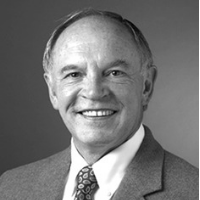 Terry L. Anderson is the John & Jean DeNault Senior Fellow at Stanford’s Hoover Institution, past president of Property and Environment Research Center (PERC), a research institute in Bozeman, Montana, and professor emeritus at Montana State University, where he taught from 1972 to 1997 and won several teaching awards. Anderson is author or editor of 39 books, including the award winning The Not so Wild, Wild West: Property Rights on the Frontier (with Peter J. Hill) and Unlocking the Wealth of Indian Nations. Anderson’s articles have appeared in more than 50 professional journals, and he is a frequent contributor to Wall Street Journal and other national publications. Anderson received his B.S. degree from the University of Montana in 1968 and his M.A. and Ph.D. degrees in economics from the University of Washington in 1972. He resides in Montana with his wife and is an avid outdoorsman. He enjoys fishing, hunting, horseback riding, and generally enjoying nature.
Terry L. Anderson is the John & Jean DeNault Senior Fellow at Stanford’s Hoover Institution, past president of Property and Environment Research Center (PERC), a research institute in Bozeman, Montana, and professor emeritus at Montana State University, where he taught from 1972 to 1997 and won several teaching awards. Anderson is author or editor of 39 books, including the award winning The Not so Wild, Wild West: Property Rights on the Frontier (with Peter J. Hill) and Unlocking the Wealth of Indian Nations. Anderson’s articles have appeared in more than 50 professional journals, and he is a frequent contributor to Wall Street Journal and other national publications. Anderson received his B.S. degree from the University of Montana in 1968 and his M.A. and Ph.D. degrees in economics from the University of Washington in 1972. He resides in Montana with his wife and is an avid outdoorsman. He enjoys fishing, hunting, horseback riding, and generally enjoying nature.
 Stephen Aron is a professor of history at the University of California, Los Angeles and a past president of the Western History Association. His books include How the West Was Lost: The Transformation of Kentucky from Daniel Boone to Henry Clay (1996); American Confluence: The Missouri Frontier from Borderland to Border State (2006); and The American West: A Very Short Introduction (2015). He is currently writing a book with the working title Can We All Get Along: An Alternative History of the American West. From 2002-2014, Aron split his appointment between UCLA and the Autry Museum of the American West, serving as the executive director of the Autry Institute for the Study of the American West. In that position, as well as a consultant for other museums and for numerous television programs, documentaries, and films, he has sought to bridge the divide between academic and public history.
Stephen Aron is a professor of history at the University of California, Los Angeles and a past president of the Western History Association. His books include How the West Was Lost: The Transformation of Kentucky from Daniel Boone to Henry Clay (1996); American Confluence: The Missouri Frontier from Borderland to Border State (2006); and The American West: A Very Short Introduction (2015). He is currently writing a book with the working title Can We All Get Along: An Alternative History of the American West. From 2002-2014, Aron split his appointment between UCLA and the Autry Museum of the American West, serving as the executive director of the Autry Institute for the Study of the American West. In that position, as well as a consultant for other museums and for numerous television programs, documentaries, and films, he has sought to bridge the divide between academic and public history.
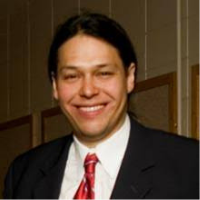 Ned Blackhawk (Western Shoshone) is a professor of history and American studies at Yale and was on the faculty from 1999 to 2009 at the University of Wisconsin, Madison. A graduate of McGill University, he holds graduate degrees in History from UCLA and the University of Washington and is the author of Violence Over the Land: Indians and Empires in the Early American West (Harvard, 2006), a study of the American Great Basin that garnered the Frederick Jackson Turner Prize from the Organization of American Historians, among others. In 2018, he co-edited Indigenous Visions: Rediscovering the World of Franz Boas published as well as a catalog contribution to the October 2018 Metropolitan Museum of Art Show, The Art of Native America.
Ned Blackhawk (Western Shoshone) is a professor of history and American studies at Yale and was on the faculty from 1999 to 2009 at the University of Wisconsin, Madison. A graduate of McGill University, he holds graduate degrees in History from UCLA and the University of Washington and is the author of Violence Over the Land: Indians and Empires in the Early American West (Harvard, 2006), a study of the American Great Basin that garnered the Frederick Jackson Turner Prize from the Organization of American Historians, among others. In 2018, he co-edited Indigenous Visions: Rediscovering the World of Franz Boas published as well as a catalog contribution to the October 2018 Metropolitan Museum of Art Show, The Art of Native America.
 Bruce Cain is an expert in U.S. politics, and particularly the politics of California and the American West. A pioneer in computer-assisted redistricting, he is a prominent scholar of elections, political regulation, and the relationships between lobbyists and elected officials. Prior to joining Stanford, Cain was director of the Institute of Governmental Studies at UC Berkeley from 1990-2007 and executive director of the UC Washington Center from 2005-2012. He was elected the American Academy of Arts and Sciences in 2000, and has won awards for his research (Richard F. Fenno Prize, 1988), teaching (Caltech 1988 and UC Berkeley 2003), and public service (Zale Award for Outstanding Achievement in Policy Research and Public Service, 2000). He is currently working on state regulatory processes and stakeholder involvement in the areas of water, energy, and the environment.
Bruce Cain is an expert in U.S. politics, and particularly the politics of California and the American West. A pioneer in computer-assisted redistricting, he is a prominent scholar of elections, political regulation, and the relationships between lobbyists and elected officials. Prior to joining Stanford, Cain was director of the Institute of Governmental Studies at UC Berkeley from 1990-2007 and executive director of the UC Washington Center from 2005-2012. He was elected the American Academy of Arts and Sciences in 2000, and has won awards for his research (Richard F. Fenno Prize, 1988), teaching (Caltech 1988 and UC Berkeley 2003), and public service (Zale Award for Outstanding Achievement in Policy Research and Public Service, 2000). He is currently working on state regulatory processes and stakeholder involvement in the areas of water, energy, and the environment.
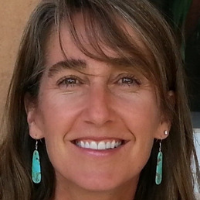 Sara Dant is professor and chair of history at Weber State University in Ogden, Utah, whose work focuses on environmental politics in the United States with a particular emphasis on the creation and development of consensus and bi-partisanism. Her newest book is Losing Eden: An Environmental History of the American West (2017), a synthetic “deep history” of the region that examines the interaction between people and nature over time. Dant is the author of several prize-winning articles on western environmental politics and co-author of the two-volume Encyclopedia of American National Parks (2004). An avid outdoor enthusiast and native westerner, Dant divides her time between northern Utah and the Galisteo River Valley outside Santa Fe, New Mexico.
Sara Dant is professor and chair of history at Weber State University in Ogden, Utah, whose work focuses on environmental politics in the United States with a particular emphasis on the creation and development of consensus and bi-partisanism. Her newest book is Losing Eden: An Environmental History of the American West (2017), a synthetic “deep history” of the region that examines the interaction between people and nature over time. Dant is the author of several prize-winning articles on western environmental politics and co-author of the two-volume Encyclopedia of American National Parks (2004). An avid outdoor enthusiast and native westerner, Dant divides her time between northern Utah and the Galisteo River Valley outside Santa Fe, New Mexico.
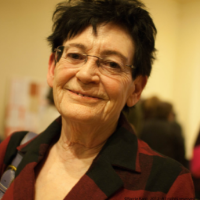 ROXANNE DUNBAR-ORTIZ grew up in rural Oklahoma, a child of tenant farmers. As a veteran of the 1960s revolution, she has been involved in anti-racist, anti-colonial, anti-imperialist movements; union organizing; and was one of the founders of the Women’s Liberation Movement in the late 1960s. Since 1973, she has focused on Native American and Ethnic Studies and worked with Indigenous communities for sovereignty and land rights and helped build the international Indigenous movement. A historian, writer, and professor emeritus in Native American studies at California State University, she is author of numerous Indigenous related books and articles, including Roots of Resistance: A History of Land Tenure in New Mexico; An Indigenous Peoples’ History of the United States, and most recently, Loaded: A Disarming History of the Second Amendment. She received the 2018 Lannan Foundation Cultural Freedom Prize.
ROXANNE DUNBAR-ORTIZ grew up in rural Oklahoma, a child of tenant farmers. As a veteran of the 1960s revolution, she has been involved in anti-racist, anti-colonial, anti-imperialist movements; union organizing; and was one of the founders of the Women’s Liberation Movement in the late 1960s. Since 1973, she has focused on Native American and Ethnic Studies and worked with Indigenous communities for sovereignty and land rights and helped build the international Indigenous movement. A historian, writer, and professor emeritus in Native American studies at California State University, she is author of numerous Indigenous related books and articles, including Roots of Resistance: A History of Land Tenure in New Mexico; An Indigenous Peoples’ History of the United States, and most recently, Loaded: A Disarming History of the Second Amendment. She received the 2018 Lannan Foundation Cultural Freedom Prize.
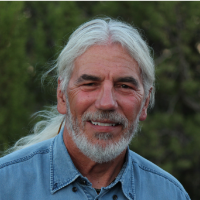 DAN FLORES is A.B. Hammond Professor Emeritus of the History of the American West at the University of Montana. The author of ten books, he has also written for The New York Times, the Los Angeles Times, and the Chicago Tribune, as well as numerous national magazines. Flores is the author, most recently, of American Serengeti: The Last Big Animals of the Great Plains, which received the 2017 Stubbendieck Distinguished Book Prize. Previously, he wrote the New York Times best-selling book Coyote America: A Natural and Supernatural History, which won the 2017 Sigurd Olson Nature Writing Award and was a finalist for PEN America’s 2017 E.O. Wilson Prize in Literary Science Writing. Flores lives in the Galisteo Valley outside of Santa Fe, New Mexico.
DAN FLORES is A.B. Hammond Professor Emeritus of the History of the American West at the University of Montana. The author of ten books, he has also written for The New York Times, the Los Angeles Times, and the Chicago Tribune, as well as numerous national magazines. Flores is the author, most recently, of American Serengeti: The Last Big Animals of the Great Plains, which received the 2017 Stubbendieck Distinguished Book Prize. Previously, he wrote the New York Times best-selling book Coyote America: A Natural and Supernatural History, which won the 2017 Sigurd Olson Nature Writing Award and was a finalist for PEN America’s 2017 E.O. Wilson Prize in Literary Science Writing. Flores lives in the Galisteo Valley outside of Santa Fe, New Mexico.
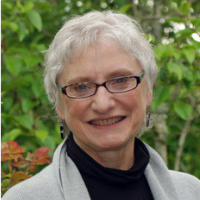 MOLLY GLOSS is a novelist and short-story writer whose work often concerns the landscape, literature, mythology, and life of the American West. She is the author of The Jump-Off Creek, Wild Life, The Hearts of Horses, and Falling From Horses. Her novels have received, among other honors, a PEN West Fiction Prize, an Oregon Book Award, Pacific Northwest Booksellers Awards, the James Tiptree, Jr. Award, and a Whiting Writers Award. A fourth-generation Oregonian, she lives in Portland.
MOLLY GLOSS is a novelist and short-story writer whose work often concerns the landscape, literature, mythology, and life of the American West. She is the author of The Jump-Off Creek, Wild Life, The Hearts of Horses, and Falling From Horses. Her novels have received, among other honors, a PEN West Fiction Prize, an Oregon Book Award, Pacific Northwest Booksellers Awards, the James Tiptree, Jr. Award, and a Whiting Writers Award. A fourth-generation Oregonian, she lives in Portland.
 ELLIOT GERSON is an executive vice president at the Aspen Institute, responsible for its Policy Programs, Public Programs, and relations with international partners. The Institute’s more than 30 Policy Programs provide neutral venues to do nonpartisan analysis, foster candid dialogue among leaders, advocate new policy, and promote best practices. Public Programs, including the Aspen Ideas Festival, Aspen Words, the Aspen Institute Arts Program, and the Socrates Seminars, open its doors to broader audiences. Gerson also administers the U.S. Rhodes Scholarships. He previously practiced law, was a U.S. Supreme Court clerk, held executive positions in government and on a presidential campaign, was president of health care and education start-ups, and led two national insurance and health care companies. He has served on many nonprofit boards, especially in the arts.
ELLIOT GERSON is an executive vice president at the Aspen Institute, responsible for its Policy Programs, Public Programs, and relations with international partners. The Institute’s more than 30 Policy Programs provide neutral venues to do nonpartisan analysis, foster candid dialogue among leaders, advocate new policy, and promote best practices. Public Programs, including the Aspen Ideas Festival, Aspen Words, the Aspen Institute Arts Program, and the Socrates Seminars, open its doors to broader audiences. Gerson also administers the U.S. Rhodes Scholarships. He previously practiced law, was a U.S. Supreme Court clerk, held executive positions in government and on a presidential campaign, was president of health care and education start-ups, and led two national insurance and health care companies. He has served on many nonprofit boards, especially in the arts.
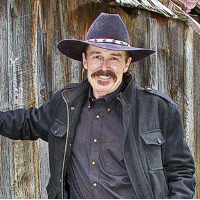 Drew Gomber was born in New York City and raised in New Jersey. After his honorable discharge from the military in 1972, he moved to Florida, where he began to pursue his career in newspapers. In his spare time, he invariably read all he could find on western history. With the exception of a three-year stint in Boston, he worked at the St. Petersburg Times in Florida, until 1994, when he decided to move to Lincoln, New Mexico. He has remained in Lincoln ever since, studying violence on the western frontier, leading tours, and writing for periodicals. He is currently waiting for his fourth book about the Lincoln County War to be published. He lives with his wife Elise, along with three dogs (and counting) in Lincoln.
Drew Gomber was born in New York City and raised in New Jersey. After his honorable discharge from the military in 1972, he moved to Florida, where he began to pursue his career in newspapers. In his spare time, he invariably read all he could find on western history. With the exception of a three-year stint in Boston, he worked at the St. Petersburg Times in Florida, until 1994, when he decided to move to Lincoln, New Mexico. He has remained in Lincoln ever since, studying violence on the western frontier, leading tours, and writing for periodicals. He is currently waiting for his fourth book about the Lincoln County War to be published. He lives with his wife Elise, along with three dogs (and counting) in Lincoln.
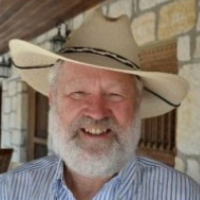 KURT HOUSE, a graduate of both Texas Christian University and Southern Methodist University and a doctoral candidate in anthropology, is a longtime collector of firearms and western memorabilia with a particular interest in John Wesley Hardin. He has published six books and numerous articles on various subjects ranging from archaeology to antique arms and also appraises antique arms and western memorabilia. He is a member of many organizations, and has served in leadership and board positions, including the Colt Collectors Association; the National Rifle Association; the Texas Gun Collectors Association; the National Bit, Spur and Saddle Collector’s Association; the Wild West History Association; the Former Texas Ranger Foundation; and the American Fan Collector Association, for which he is the founder.
KURT HOUSE, a graduate of both Texas Christian University and Southern Methodist University and a doctoral candidate in anthropology, is a longtime collector of firearms and western memorabilia with a particular interest in John Wesley Hardin. He has published six books and numerous articles on various subjects ranging from archaeology to antique arms and also appraises antique arms and western memorabilia. He is a member of many organizations, and has served in leadership and board positions, including the Colt Collectors Association; the National Rifle Association; the Texas Gun Collectors Association; the National Bit, Spur and Saddle Collector’s Association; the Wild West History Association; the Former Texas Ranger Foundation; and the American Fan Collector Association, for which he is the founder.
MARCUS HUFF
Marcus Huff is the former editor of True West magazine and has edited and written over 1,000 articles on the American West and seven books, including the completed works of Philip K. Rasch. A frequent contributor and consultant, Huff has appeared on the History Channel, PBS, NPR, FOX Television and Discovery. He has also served as a series editor for the National Association of Lawman and Outlaw History and the Western History Association.
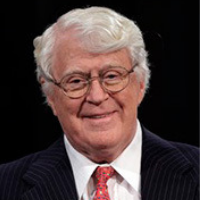 William “Bill” Koch is the founder and chief executive officer of Oxbow Carbon LLC which has offices across the globe and is the world’s largest marketing company of fuel grade and calcined petroleum coke, a key ingredient in the manufacturing of aluminum, and a key supplier of sulphur, sulphuric acid, and fertilizers. A native of Wichita, Kansas, Koch graduated from Culver Military Academy and earned his BA, MA and Ph.D. degrees in chemical engineering from MIT. He was awarded four honorary doctoral degrees. In addition to his business success as an entrepreneur, Koch is recognized as a world-class sailor, art collector, and philanthropist. He and his team won the 1992 America’s Cup, the most coveted prize in professional sailing, and he also won four sailing world championships. He founded and was the chairman of the Kansas Crime Commission, which he was devoted to studying the root causes of crime; he has founded an innovative private high school; and he has loaned his world class art collection to museums around the globe.
William “Bill” Koch is the founder and chief executive officer of Oxbow Carbon LLC which has offices across the globe and is the world’s largest marketing company of fuel grade and calcined petroleum coke, a key ingredient in the manufacturing of aluminum, and a key supplier of sulphur, sulphuric acid, and fertilizers. A native of Wichita, Kansas, Koch graduated from Culver Military Academy and earned his BA, MA and Ph.D. degrees in chemical engineering from MIT. He was awarded four honorary doctoral degrees. In addition to his business success as an entrepreneur, Koch is recognized as a world-class sailor, art collector, and philanthropist. He and his team won the 1992 America’s Cup, the most coveted prize in professional sailing, and he also won four sailing world championships. He founded and was the chairman of the Kansas Crime Commission, which he was devoted to studying the root causes of crime; he has founded an innovative private high school; and he has loaned his world class art collection to museums around the globe.
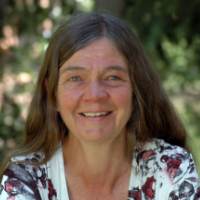 PATTY LIMERICK is the faculty director and chair of the board of the Center of the American West at the University of Colorado Boulder, where she is also a professor of environmental studies and history. In addition, Limerick was appointed to the National Endowment for the Humanities advisory board The National Council on the Humanities, in 2015. She is the author of Desert Passages, The Legacy of Conquest, Something in the Soil, and A Ditch in Time. A recipient of the MacArthur Fellowship and the Hazel Barnes Prize — the University of Colorado’s highest award for teaching and research — she has served as president of the American Studies Association, the Western History Association, the Society of American Historians, and the Organization of American Historians, as well as the vice president for teaching of the American Historical Association. She received her B.A. from the University of California, Santa Cruz, and her Ph.D. from Yale University.
PATTY LIMERICK is the faculty director and chair of the board of the Center of the American West at the University of Colorado Boulder, where she is also a professor of environmental studies and history. In addition, Limerick was appointed to the National Endowment for the Humanities advisory board The National Council on the Humanities, in 2015. She is the author of Desert Passages, The Legacy of Conquest, Something in the Soil, and A Ditch in Time. A recipient of the MacArthur Fellowship and the Hazel Barnes Prize — the University of Colorado’s highest award for teaching and research — she has served as president of the American Studies Association, the Western History Association, the Society of American Historians, and the Organization of American Historians, as well as the vice president for teaching of the American Historical Association. She received her B.A. from the University of California, Santa Cruz, and her Ph.D. from Yale University.
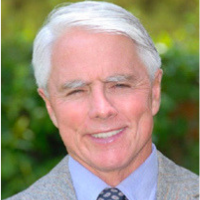 Roger McGrath, Ph.D., has appeared in more than 100 documentaries, including dozens of episodes of such long-running series as “The Real West,” “Biography,” “Tales of the Gun,” “Wild West Tech,” and “ Outlaws & Cowboys.” McGrath has a passion for history, especially the Old West and military history. For many years, he taught courses in both, including 15 years at UCLA where the Panhellenic Council voted him “Outstanding Professor,” demonstrating that the brothers and sisters of the fraternities and sororities must have still been feeling the effects of weekend parties. McGrath is the author of Gunfighters, Highwaymen, and Vigilantes and has co-authored several books. He is also the author of more than 150 articles, columns, and book reviews. McGrath is also a veteran of the United States Marine Corps and at one time a jet-rated pilot. In his spare time, he surfs and rides motorcycles.
Roger McGrath, Ph.D., has appeared in more than 100 documentaries, including dozens of episodes of such long-running series as “The Real West,” “Biography,” “Tales of the Gun,” “Wild West Tech,” and “ Outlaws & Cowboys.” McGrath has a passion for history, especially the Old West and military history. For many years, he taught courses in both, including 15 years at UCLA where the Panhellenic Council voted him “Outstanding Professor,” demonstrating that the brothers and sisters of the fraternities and sororities must have still been feeling the effects of weekend parties. McGrath is the author of Gunfighters, Highwaymen, and Vigilantes and has co-authored several books. He is also the author of more than 150 articles, columns, and book reviews. McGrath is also a veteran of the United States Marine Corps and at one time a jet-rated pilot. In his spare time, he surfs and rides motorcycles.
 Eric L. Motley, Ph.D., is an executive vice president and corporate secretary at the Aspen Institute, responsible for Institutional Advancement and governance. He previously served as Vice President and Executive Director of National Programs at the Aspen Institute and the Director of the U.S. Department of State’s Office of International Visitors. In 2003, Motley was appointed as Special Assistant to President George W. Bush for Presidential Personnel. He serves on the Board of Directors for numerous arts, literature, and other cultural institutions, and is a Paul Harris Fellow of the Rotary International Foundation and Henry Crown Fellow of the Aspen Institute. In February 2017, he published a memoir Madison Park, A Place of Hope. Motley earned his bachelor’s degree in political science and philosophy from Samford University. At the University of St. Andrews in Scotland, he earned a Master of Letters in International Relations and a Ph.D. as the John Steven Watson Scholar.
Eric L. Motley, Ph.D., is an executive vice president and corporate secretary at the Aspen Institute, responsible for Institutional Advancement and governance. He previously served as Vice President and Executive Director of National Programs at the Aspen Institute and the Director of the U.S. Department of State’s Office of International Visitors. In 2003, Motley was appointed as Special Assistant to President George W. Bush for Presidential Personnel. He serves on the Board of Directors for numerous arts, literature, and other cultural institutions, and is a Paul Harris Fellow of the Rotary International Foundation and Henry Crown Fellow of the Aspen Institute. In February 2017, he published a memoir Madison Park, A Place of Hope. Motley earned his bachelor’s degree in political science and philosophy from Samford University. At the University of St. Andrews in Scotland, he earned a Master of Letters in International Relations and a Ph.D. as the John Steven Watson Scholar.
 Martha A. Sandweiss is a historian of the United States with particular interests in the history of the American West, visual culture, and public history. She began her career as a photography curator at the Amon Carter Museum in Ft. Worth, Texas, then taught at Amherst College for 20 years before joining the Princeton University faculty in 2009. Sandweiss is the author of Passing Strange: A Gilded Age Tale of Love and Deception across the Color Line (2009), and Print the Legend: Photography and the American West (2002). Her other works include Laura Gilpin: An Enduring Grace (1986) and the co-edited volume The Oxford History of the American West. She is also the founder and director of The Princeton & Slavery Project, an ambitious public history project that explores the historical connections between Princeton and the institution of slavery.
Martha A. Sandweiss is a historian of the United States with particular interests in the history of the American West, visual culture, and public history. She began her career as a photography curator at the Amon Carter Museum in Ft. Worth, Texas, then taught at Amherst College for 20 years before joining the Princeton University faculty in 2009. Sandweiss is the author of Passing Strange: A Gilded Age Tale of Love and Deception across the Color Line (2009), and Print the Legend: Photography and the American West (2002). Her other works include Laura Gilpin: An Enduring Grace (1986) and the co-edited volume The Oxford History of the American West. She is also the founder and director of The Princeton & Slavery Project, an ambitious public history project that explores the historical connections between Princeton and the institution of slavery.
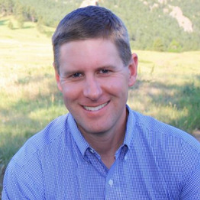 Ed Roberson serves as conservation director at Palmer Land Trust, an innovative and highly effective land conservation organization that protects Southern Colorado’s working agricultural lands, recreational open space, and stunning scenic vistas. Prior to Palmer, he spent his career in the business world, having worked extensively in ranch brokerage, commercial real estate, and finance. Roberson’s formal education also centered around business—he holds both a B.A. in economics and an MBA with a concentration in finance from Wake Forest University. As a passion project, Roberson hosts the Mountain & Prairie podcast, which features long-form interviews with innovators of the American West. Away from the office, he is keenly focused on mountain sports, having run numerous 50- and 100- mile ultramarathons through the western backcountry and climbed Denali, Aconcagua, and many of Colorado’s 14,000-foot mountains. Roberson calls Colorado Springs home, where he lives with his wife and two young daughters.
Ed Roberson serves as conservation director at Palmer Land Trust, an innovative and highly effective land conservation organization that protects Southern Colorado’s working agricultural lands, recreational open space, and stunning scenic vistas. Prior to Palmer, he spent his career in the business world, having worked extensively in ranch brokerage, commercial real estate, and finance. Roberson’s formal education also centered around business—he holds both a B.A. in economics and an MBA with a concentration in finance from Wake Forest University. As a passion project, Roberson hosts the Mountain & Prairie podcast, which features long-form interviews with innovators of the American West. Away from the office, he is keenly focused on mountain sports, having run numerous 50- and 100- mile ultramarathons through the western backcountry and climbed Denali, Aconcagua, and many of Colorado’s 14,000-foot mountains. Roberson calls Colorado Springs home, where he lives with his wife and two young daughters.
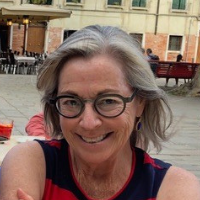 VIRGINIA SCHARFF is a distinguished Professor of History Emerita and director of the Center for the Southwest at the University of New Mexico. Her books include Taking the Wheel: Women and the Coming of the Motor Age (1991); Home Lands: How Women Made the West (coauthored with Carolyn Brucken, 2010); Seeing Nature Through Gender (2003), and Empire and Liberty: The Civil War and the West (2015). Scharff ’s The Women Jefferson Loved (2010) was a New York Times “Editor’s Choice.” Scharff has served as Women of the West Chair and senior scholar at the Autry Museum. She is a fellow of the Society of American Historians, was president of the Western History Association (2008), and currently serves on the executive board of the Organization of American Historians. Scharff is the author of four mystery suspense novels, written under the name of Virginia Swift, published by HarperCollins. She is working on a historical novel.
VIRGINIA SCHARFF is a distinguished Professor of History Emerita and director of the Center for the Southwest at the University of New Mexico. Her books include Taking the Wheel: Women and the Coming of the Motor Age (1991); Home Lands: How Women Made the West (coauthored with Carolyn Brucken, 2010); Seeing Nature Through Gender (2003), and Empire and Liberty: The Civil War and the West (2015). Scharff ’s The Women Jefferson Loved (2010) was a New York Times “Editor’s Choice.” Scharff has served as Women of the West Chair and senior scholar at the Autry Museum. She is a fellow of the Society of American Historians, was president of the Western History Association (2008), and currently serves on the executive board of the Organization of American Historians. Scharff is the author of four mystery suspense novels, written under the name of Virginia Swift, published by HarperCollins. She is working on a historical novel.
 HAMPTON SIDES is the author of In the Kingdom of Ice, Ghost Soldiers, Blood and Thunder, Hellhound On His Trail, and other bestselling works of narrative history. Sides is an editor-at-large for Outside magazine and contributes to such periodicals as National Geographic, Smithsonian, and The Atlantic. A recent fellow of the Santa Fe Institute, he teaches literary journalism at Colorado College. Sides’s Blood and Thunder (2006) was named one of the 10 Best Books of 2006 by Time magazine, and was selected as the year’s best history title by the Western Writers of America. Blood and Thunder was the subject of a major documentary on the PBS program “The American Experience.” A native of Memphis with a B.A. in history from Yale, he lives in Santa Fe with his wife Anne. His newest work, On Desperate Ground, will be published by Doubleday this October.
HAMPTON SIDES is the author of In the Kingdom of Ice, Ghost Soldiers, Blood and Thunder, Hellhound On His Trail, and other bestselling works of narrative history. Sides is an editor-at-large for Outside magazine and contributes to such periodicals as National Geographic, Smithsonian, and The Atlantic. A recent fellow of the Santa Fe Institute, he teaches literary journalism at Colorado College. Sides’s Blood and Thunder (2006) was named one of the 10 Best Books of 2006 by Time magazine, and was selected as the year’s best history title by the Western Writers of America. Blood and Thunder was the subject of a major documentary on the PBS program “The American Experience.” A native of Memphis with a B.A. in history from Yale, he lives in Santa Fe with his wife Anne. His newest work, On Desperate Ground, will be published by Doubleday this October.
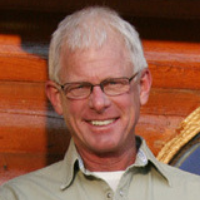 Mark Varien serves as the executive vice president of the Research Institute at the Crow Canyon Archaeological Center in Cortez, Colorado. In this position, he furthers Crow Canyon’s three-part mission: to increase knowledge of the human experience through archaeological research, to conduct that research in the context of public education programs, and to partner with American Indians on those research and education programs and other projects of mutual interest. Formed as a new initiative in 2014, the Research Institute is an institution without walls–a network of archaeologists, other social scientists, native scholars, and educators–that conducts archaeological research in the public interest for the betterment of society. Varien received a Ph.D. in anthropology from Arizona State University (1997); the Society for American Archaeology selected his dissertation for their 1998 Best Dissertation Award. He has published five books, numerous articles in peer-reviewed scientific journals, and many pieces for the interested public.
Mark Varien serves as the executive vice president of the Research Institute at the Crow Canyon Archaeological Center in Cortez, Colorado. In this position, he furthers Crow Canyon’s three-part mission: to increase knowledge of the human experience through archaeological research, to conduct that research in the context of public education programs, and to partner with American Indians on those research and education programs and other projects of mutual interest. Formed as a new initiative in 2014, the Research Institute is an institution without walls–a network of archaeologists, other social scientists, native scholars, and educators–that conducts archaeological research in the public interest for the betterment of society. Varien received a Ph.D. in anthropology from Arizona State University (1997); the Society for American Archaeology selected his dissertation for their 1998 Best Dissertation Award. He has published five books, numerous articles in peer-reviewed scientific journals, and many pieces for the interested public.
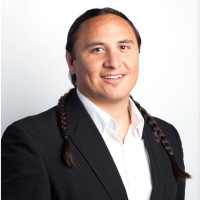 SHELDON SPOTTED ELK (Northern Cheyenne) works as a director at Casey Family Programs, Indian Child Welfare Programs, a direct operating foundation based out of Denver. Sheldon has extensive expertise in tribal law, child welfare, and juvenile issues. He collaborates with tribes and states to increase capacity in child welfare systems, in addition to working closely with national consortia that serve tribal courts. Spotted Elk is a former children’s lawyer and served as the chief of staff for the Ute Indian Tribe of the Uintah and Ouray. He holds a Juris Doctorate from University of New Mexico School of Law, where he was professional articles editor on the Tribal Law Journal and was awarded the CALI Excellence for the Future Award. Spotted Elk published an article on tribal constitutional reform in 2012. He holds a B.A. in social work from University of Utah. He is a father of two sons.
SHELDON SPOTTED ELK (Northern Cheyenne) works as a director at Casey Family Programs, Indian Child Welfare Programs, a direct operating foundation based out of Denver. Sheldon has extensive expertise in tribal law, child welfare, and juvenile issues. He collaborates with tribes and states to increase capacity in child welfare systems, in addition to working closely with national consortia that serve tribal courts. Spotted Elk is a former children’s lawyer and served as the chief of staff for the Ute Indian Tribe of the Uintah and Ouray. He holds a Juris Doctorate from University of New Mexico School of Law, where he was professional articles editor on the Tribal Law Journal and was awarded the CALI Excellence for the Future Award. Spotted Elk published an article on tribal constitutional reform in 2012. He holds a B.A. in social work from University of Utah. He is a father of two sons.
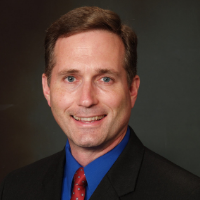 STEVEN WOODWORTH received his B.A. in 1982 from Southern Illinois University at Carbondale and his Ph.D. in 1987 from Rice University in Houston, Texas. After teaching at small colleges in Oklahoma and Georgia, he came to Texas Christian University in 1997 and is now a professor of history there. Over the years, he has authored, co-authored, or edited numerous books, including Manifest Destinies: America’s Westward Expansion and the Road to Civil War (2010), Nothing but Victory: The Army of the Tennessee, 1861-1865 (2006), While God Is Marching On: The Religious World of Civil War Soldiers (2001), and Jefferson Davis and His Generals: The Failure of Confederate Command in the West (1990).
STEVEN WOODWORTH received his B.A. in 1982 from Southern Illinois University at Carbondale and his Ph.D. in 1987 from Rice University in Houston, Texas. After teaching at small colleges in Oklahoma and Georgia, he came to Texas Christian University in 1997 and is now a professor of history there. Over the years, he has authored, co-authored, or edited numerous books, including Manifest Destinies: America’s Westward Expansion and the Road to Civil War (2010), Nothing but Victory: The Army of the Tennessee, 1861-1865 (2006), While God Is Marching On: The Religious World of Civil War Soldiers (2001), and Jefferson Davis and His Generals: The Failure of Confederate Command in the West (1990).
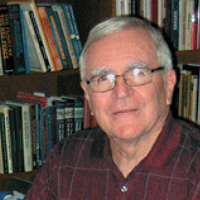 Roy B. Young, a native Oklahoman, is first vice president of the Wild West History Association (WWHA) and serves as publications editor of the quarterly journal and Saddlebag newsletter. His fields of specialty are Wyatt Earp and Tombstone, Billy the Kid, Texas Rangers, frontier scouts, and general outlaw-lawman history. He is the author of numerous books, pamphlets, and articles on all aspects of Wild West history. He is a former president of the Western Outlaw-Lawman History Association and the Oklahombres, an organization dedicated to the study of lawmen and outlaws in Oklahoma and Indian territories. He is the recipient of the WWHA “Lifetime Contributions to Wild West History” award.
Roy B. Young, a native Oklahoman, is first vice president of the Wild West History Association (WWHA) and serves as publications editor of the quarterly journal and Saddlebag newsletter. His fields of specialty are Wyatt Earp and Tombstone, Billy the Kid, Texas Rangers, frontier scouts, and general outlaw-lawman history. He is the author of numerous books, pamphlets, and articles on all aspects of Wild West history. He is a former president of the Western Outlaw-Lawman History Association and the Oklahombres, an organization dedicated to the study of lawmen and outlaws in Oklahoma and Indian territories. He is the recipient of the WWHA “Lifetime Contributions to Wild West History” award.

